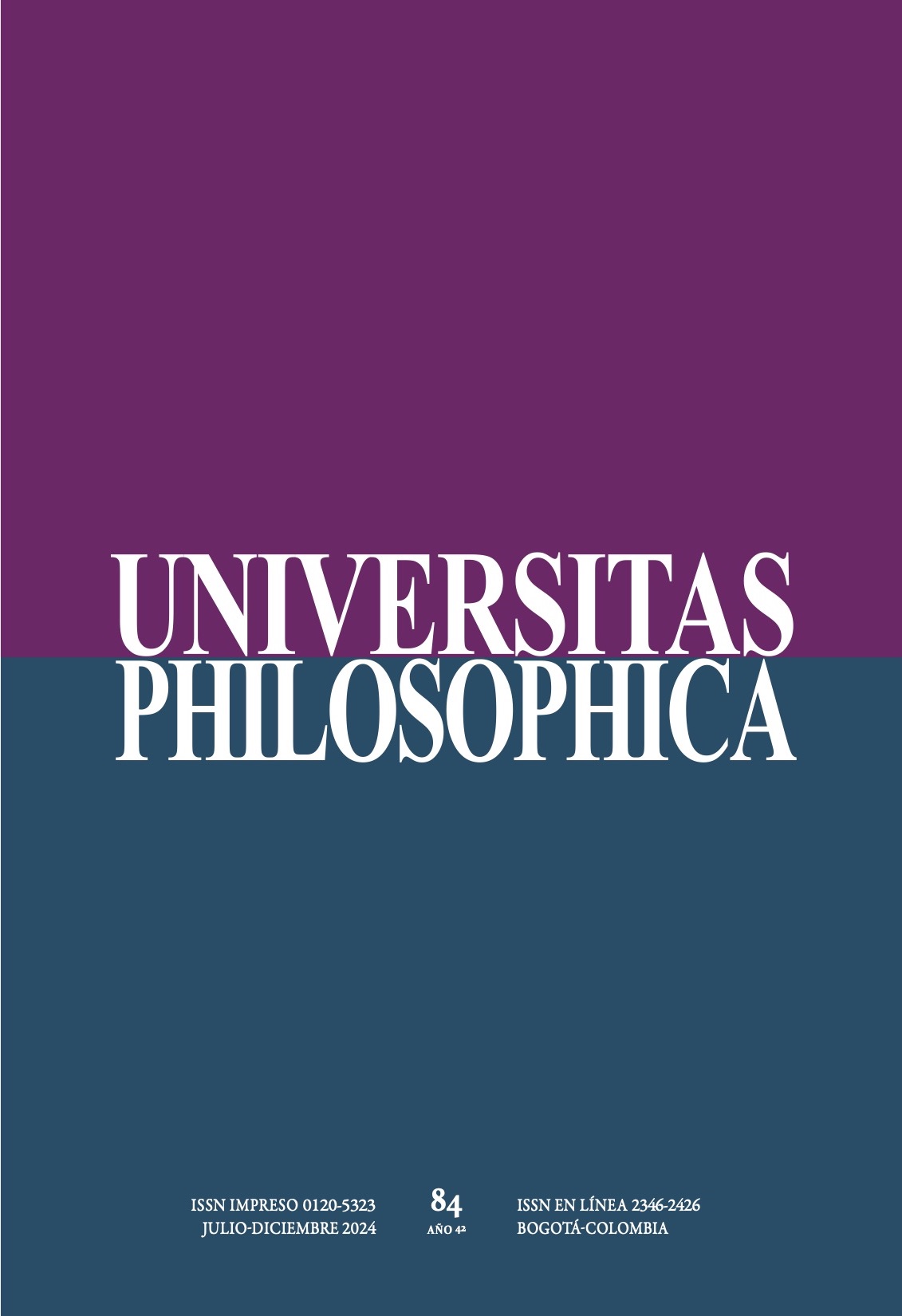Resumen
Este artículo explora las líneas principales de los escritos propiamente pedagógicos de Ernst Bloch, contenidos en la sección “Ad Pädagogica” de sus Ensayos filosóficos sobre la fantasía objetiva. Junto a una valoración general de estos escritos, el autor resalta algunos de sus temas nucleares, a saber: la evaluación que Bloch hace de la pedagogía moderna, el problema didáctico de la traducibilidad de los presupuestos del marxismo, el método de enseñanza de la filosofía y la posibilidad de una ciencia comprometida en sentido parcial-partidista. Se muestra cómo, ante la incongruencia entre los postulados de la pedagogía moderna y la sociedad que se desarrolló a la postre, la pedagogía que tiende a la resignación solo puede ser realizada en sus utopías más prístinas por medio de un pensamiento comprometido en la transformación del mundo.
Adorno, Th. (2003). Notas sobre la literatura. Obra completa 11 (A. Brotons Muñoz, trad.). Akal.
Alves Lopes, F., & Suares Aranha, A. V. (2017). Pedagogia da utopia: Um diálogo entre Paulo Freire e Ernst
Bloch. Movimento-revista de educação, 7, 133-158.
Arendt, H. (2018). Los orígenes del totalitarismo (G. Solana, trad.). Alianza.
Bertelli, L. (2018). L’utopia nell’estetico. Tempo e narrazzione in Ernst Bloch. Edizioni ETS.
Bloch, E. (1969). Philosophische Aufsätze zur objektiven Phantasie. Gesamtausgabe Bd. 10. Suhrkamp.
Bloch, E. (1970). Tübinger Einleitung in die Philosophie. Gesamtausgabe Bd. 13. Suhrkamp Verlag.
Bloch, E. (1975). Ein falscher Sozialismus ist kein Sozialismus. En R. Traub & H. Wieser (eds.), Gespräche mit Ernst Bloch (pp. 139-144). Suhrkamp.
Bloch, E. (1977). Zwischenwelten in der Philosophiegeschichte, Aus Leipziger Vorlesungen. Gesamtausgabe Bd. 12. Suhrkamp.
Bloch, E. (1985a). Briefe 1903–1975. Bd. 2. Suhrkamp.
Bloch, E. (1985b). Kampf, nicht Krieg, Politische Schriften 1917-1919. Suhrkamp.
Bloch, E. (1985c). Leipziger Vorlesungen zur Geschichte der Philosophie 1950–1956 (R. Römer & B. Schmidt, eds.; tomos 1-4). Suhrkamp.
Bloch, E. (1993). Autopercepción intelectual de un proceso histórico. Entrevista con José Marchand (F. Mogorrón Casamayor & M. Vasco Jiménez, trads.). Anthropos. Revista de documentación científica de la cultura, 146-147, 17-46.
Bloch, E. (2000). Logos der Materie. Eine Logik im Werden. Aus dem Nachlass 1923-1949 (Gerardo Cunico). Suhrkamp.
Bloch, E. (2004a). El principio esperanza, 1. (F. González Vicén, trad.). Trotta.
Bloch, E. (2004b). El principio esperanza, 2 (F. González Vicén, trad.). Trotta.
Bloch, E. (2005). Huellas (M. Salmerón Infante, trad.). Tecnos.
Bloch, E. (2007). El principio esperanza, 3 (F. González Vicén, trad.). Trotta.
Bloch, E. (2019). Herencia de esta época (M. Salmerón Infante, trad.). Tecnos.
Bruno, G. (2022). Theory and Practice for Literacy in the Prison Classroom. An Inquiry Approach for Students and Educators. Brill.
Cemiloğlu, N. (2018). Between Marxism and Romanticism: Childhood and Education in the Works of Ernst Bloch. 24(94), 217-226. https://doi.org/DOI: 10.22559/folklor.252
Cemiloğlu, N. (2019). “Flaschenpost” from the Past: The Critical Utopian Pedagogies of Ernst Bloch and Paulo Freire. Ethos: Dialogues in Philosophy and Social Science, 12(2), 187-204.
Czajka, A. (2003). Tracce dell’ umano. Il pensiero narrante di Ernst Bloch. Diabasis.
Hojer, E. (1984). Die pädagogischen Schriften Ernst Blochs. Versuch einer kritischen Würdigung. Perspektiven der Philosophie, 10, 95-118. https://doi.org/10.5840/pdp1984105
Lima, I. B. de. (2010). Utopia concreta, esperança e educação: O Princípio Esperança de Ernst Bloch como filosofia da educação [Tesis de doctorado, Universidade Federal do Ceará]. https://repositorio.ufc.br/bitstream/riufc/3091/1/2010_Tese_IBLima.pdf
Lukács, G. (2013). Historia y conciencia de clase: Estudios de dialéctica marxista (M. Sacristán, trad.). RyR.
Lukács, G. (2016). La teoría de la novela (M. Sacristán, trad.). Penguin Random House.
Misoczky, M. C. A., Moraes, J., & Flores, R. (2009). Bloch, Gramsci e Paulo Freire: Referências fundamentais para os atos da denúncia e do anúncio. Cadernos EBAPE.BR, 7(3). https://doi.org/10.1590/S1679-39512009000300005
Novkovic, D. (2024). „Das Hoffen lernen“. Ernst Blochs materialistische Hermeneutik des leidenden Subjekts als methodisches Organ für eine befreiende Sozialpädagogik bei Devianz im Kindes- und Jugendalter. Sozialer Sinn, 25(2), 227-251. https://doi.org/doi.org/10.1515/sosi-2024-0009
Retamal, C. (2022). Ernst Bloch en el laberinto de la distopía. El ejercicio del pensar, 20, 30-43.
Rohrbacher, K. (1988). «Das hoffen lernen»: Ernst Blochs Beiträge zur Pädagogik. Inauguraldissertation zur Erlangung des Grades eines Dr. Phil. An der Fakultät für Sozial- und Verhaltenswissenschaften der Universität Heidelberg. Selbstverlag.
Rojo Ustaritz, A. (1996). Utopía freireana. La construcción del inédito viable. Perfiles Educativos, 74.
Serra, F. (1998). Historia, política y derecho en Ernst Bloch. Trotta.
Sloterdijk, P. (2017). Esferas I. Burbujas. Microsferología (I. Reguera, trad.). Siruela.
Van Heertum, R. (2006). Marcuse, Bloch and Freire: Reinvigorating a Pedagogy of Hope. Policy Futures in Education, 4(1), 45-51.
Zudeick, P. (1992). Ernst Bloch: vida y obra. Alfons el Magnánim.

Esta obra está bajo una licencia internacional Creative Commons Atribución 4.0.
Derechos de autor 2025 Aníbal Pineda Canabal



